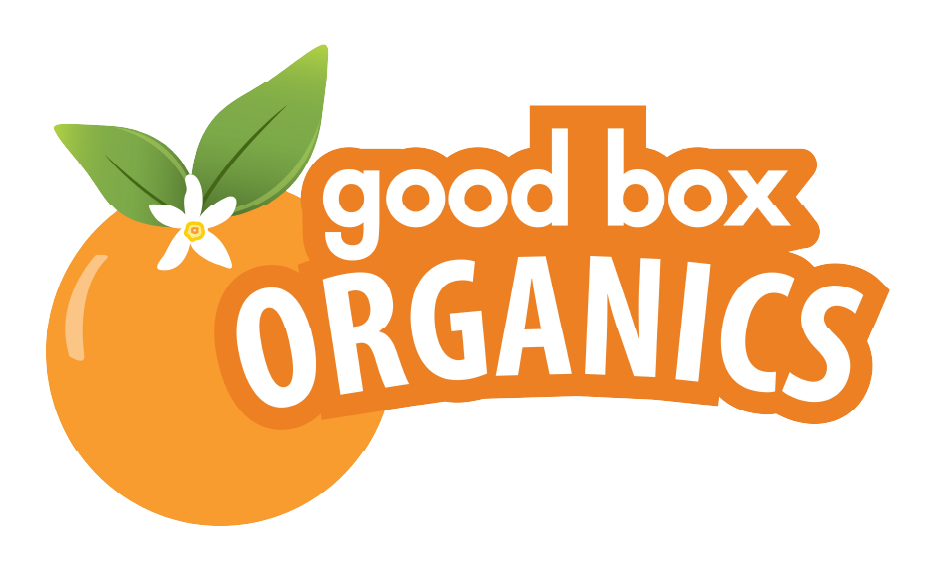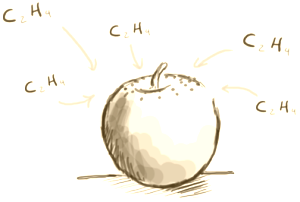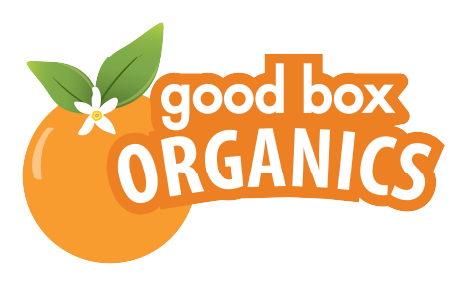We want to share an awesome little product that will help extend the life of your fruits and veggies!
BlueApple!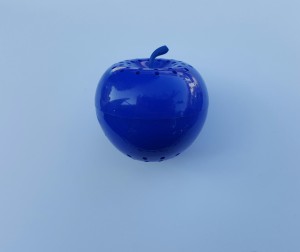
We’ve all experienced it. You go to the store and get a little excited and buy all the amazing produce you want (or you’ve just received your new delivery of Good Life produce). Then, place it in the fridge or on the counter in a beautiful bowl. The next day when you grab that juicy peach, your finger squishes right into it’s over ripe flesh. What?! How can your newly received fruit be bad already? Ethylene gas.
Blueapple works by absorbing the ethylene gases released by fruits and vegetables as they mature.
Ethylene is a natural hormone produced by fruits and vegetables (released as a gas) to aid the ripening process along. Some fruits and vegetables produce more ethylene and some are more sensitive to the gas. The gas itself is not toxic and has no smell. What it can do is speed up the ripening process too fast while in concentrated areas like a fridge or storage box. 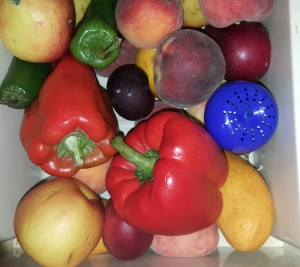
Again, the blueapple works by absorbing the ethylene. The small satchels inside the blue apple do not loose their potency but do run our of room to absorb. The contents of the satchels are made of volcanic ash and sodium permanganate and can be added to potting soil or to compost when you change them out for fresh ones! The blueapple can then be refilled and used over and over- so as not to add more plastic to your garbage can!
We think it’s a great little treasure and have them in our food crisping drawers in the fridge and in our dry storage containers. It also helps to learn which fruits and vegetables are large producers of ethylene and which are more sensitive to it. You can purchase them online or at a local home store such as Bed Bath and Beyond. Don’t forget your refill packs. Remember, the contents don’t wear out, but over a few months of absorbing they will run out of room to absorb
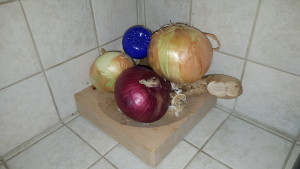
Ethylene producing foods
apples, apricots, avocados, bananas (ripe), blueberries, cantaloupe, cherimoyas, cranberries, figs, green onions, guavas, grapes, honeydew, kiwifruit, mangoes, mangosteen, nectarines, papayas, passion fruit, peaches, pears, persimmons, plums, potatoes, prunes, quince, tomatoes
Ethylene sensitive foods
asparagus, bananas (unripe), blackberries, broccoli, Brussels sprouts, cabbage, carrots, cauliflower, chard, cucumbers, eggplant, endive, garlic, green beans, kale, leafy greens, leeks, lettuce, okra, onions, parsley, peas, peppers, raspberries, spinach, squash, strawberries, sweet potatoes, watercress, watermelon
